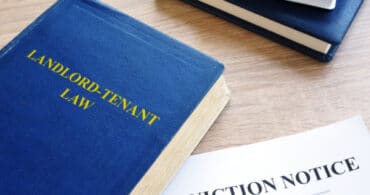The New Green Homes Grant: What does it mean for Landlords?
Landlords are set to benefit from the Government’s latest scheme which offers vouchers up to £10,000 to cover the costs of making energy efficiency improvements to privately rented properties. Now is the ideal time to start gearing up for the new energy efficiency measures currently under consultation, which could demand that all properties let privately from April 2025 meet an EPC rating of C or above.

Landlords are set to benefit courtesy of the UK Government’s latest scheme which offers vouchers up to £10,000 to cover the costs of making energy efficiency improvements to their privately rented properties. With this in mind, now is the ideal time for landlords Croydon, London and UK-wide to start gearing up for the new energy efficiency measures currently under consultation, which could demand that all properties let under new private tenancies from April 2025 meet an EPC rating of C or above.
The Green Homes Grant scheme is a Government initiative designed to help homeowners and landlords fund energy efficiency related upgrades to their properties. Insulation, draught proofing, double or triple glazing, solar panels, heat pump installation and heating controls will all be covered under the scheme. Landlords and tenants will benefit with savings in the region of £300 per year on energy bills.
With grants only currently on offer until 31 March 2021, it is imperative that landlords take advantage without delay. Applications opened at the end of September 2020.
How does the Green Homes Grant work?
The Green Homes Grant makes it possible for property owners, including private landlords, to apply for funding vouchers towards energy efficiency related home improvements. Whilst most homeowners and landlords will be entitled to vouchers worth up to £5,000, there will be more funding available for those on the lowest incomes who could claim up to £10,000.
This is how it works…
For every £1 spent on qualifying energy efficiency or low carbon improvements, the Government will give at least £2. In other words, the Grant will cover two thirds of the cost of improvements. So if improvement measures cost £3,000, the Government would cover £2,000 of the bill, and the landlord would foot the remaining £1,000.
The improvement measures allowable under the Grant are categorised under primary and secondary. All applications have to include at least one primary measure, and it is not permitted to claim more for a secondary measure than for a primary one.
Landlords Croydon and London wide will be pleased to learn that there is no limit to how many applications can be made. So if you have a portfolio, then you can claim for as many of your properties as you wish, providing you stay within the set parameters for each.
Why should landlords improve the energy efficiency of their properties?
Energy efficient properties lead to reduced utility bills. This is a major attraction for tenants. 42 per cent of tenants consider the eco-credentials of a property when making their choice, and those homes with an energy efficiency rating of D or higher tend to attract a more environmentally aware type of renter.
At the end of September 2020, a consultation was launched concerning improving the energy efficiency of privately rented homes. The consultation sets out a range of proposals which will spell considerable benefits to landlords and tenants, as well as the environment. Reducing energy bills, property value improvements and carbon emission savings towards the Government net zero target are all on the agenda.
The detailed proposals for amending the current Regulations include raising the energy performance standard to Energy Performance Certificate (EPC) Band C; a phased route for achieving the improvements for new tenancies from 2025, and all existing tenancies from 2028, and increasing the maximum amount landlords are expected to contribute towards achieving the EPC rating from the current £3,500 cap to £10,000.
With all this change on the horizon, it is highly advisable for landlords in Croydon and beyond to take advantage of the Green Homes Grant to help with the costs of what will be inevitable compulsory upgrades.
What home improvements are covered under the Green Homes Grant?
The Government has published a full list of what is and what isn’t covered by the Green Homes Grant. Here’s a round-up:
Primary energy efficiency measures
At least one of the following primary measures must be included in the claim:
Insulation measures:
- Solid wall
- Cavity wall
- Flat roof
- Roof room
- Loft
- Underfloor
- Park home insulation
Low carbon heat measures:
- Air or ground source heat pumps
- Solar thermal
- Biomass boilers
It is not possible to use Green Homes Grant vouchers towards works already undertaken before they were issued, or for replacing insulation or low carbon heating installations already installed in the property. It is possible however to use the vouchers to top up existing measures to bring them up to the recommended levels.
Secondary energy efficiency measures
Once one primary measure has been undertaken, the voucher can be used towards any of these secondary measures:
- Replacement of single glazing for double or triple glazing
- Replacement of single glazed or solid external doors installed before 2002 with external energy efficient doors
- Addition of heating controls
- Hot water tank thermostats and insulation
- Draught proofing
The amount you can claim for secondary measures must not exceed what you received for the primary measures. The building of new extensions or conversions; insulating conservatories with no fixed heating, and installing a new fossil fuel boiler are not included as qualifying measures.
How to apply for Green Homes Grant vouchers?
Applications for Green Home Grant vouchers can be made as of the end of September 2020 and should be done online via the Simple Energy Advice (SEA) website. The website will help you find a local accredited tradesperson or business to undertake the work. A postal or phone application service will be available for those who cannot access the internet.
To ensure the work is carried out to a high standard and all parties are fully protected, traders must be Microgeneration Certification Scheme (MCS) or TrustMark approved.
Once the works are agreed, the vouchers will be issued. It is recommended that you wait until your voucher application is approved before you proceed with the works.
Vouchers must be redeemed and improvements completed by 31 March 2021. Private or social landlords of properties in England are eligible to apply. New build properties that have not been previously occupied are not eligible.
Landlords in Croydon: Need help ensuring you meet your energy efficiency responsibilities as a landlord?
Property management services agents and landlords Croydon and London wide can all benefit from the expertise on offer from the homes2let team when it comes to ensuring their rental properties all meet the new Government energy efficiency Regulations in good time.
As well has handing over vital responsibilities such as these, landlords can enjoy enhanced peace of mind courtesy of our guaranteed rent scheme. To learn more, and for the advice you need to stay compliant, you are welcome to get in touch with our helpful team.
Related Insights

How to End a Tenancy Agreement: A Guide for Landlords
Ending a tenancy agreement doesn’t have to be a challenging experience for a landlord, but it is important to follow the correct procedure. If you are looking to bring a rental to an end, this simple guide on how to end a tenancy agreement should prove useful, and keep you within the law.

Could ‘Green Mortgages’ be the Solution for Landlords Looking to Improve EPC Ratings?
With the government’s Green Homes Grant off the agenda, and new energy efficiency rules for rental property on their way in, there is a growing need for some form of funding to help landlords meet their regulatory responsibilities. One such solution could be the ‘green mortgage’. Here’s the lowdown on these loans that are designed to support sustainable home improvements.

Who is Responsible for Pest Control in a Rental Property?
Bed bugs, cockroaches, mice or rats, it’s never pleasant when a rental property is suffering a pest infestation. But the question of who is responsible for pest control in a rental property remains a grey area. It can be challenging to work out how an infestation came about, which is generally how to determine who is responsible for dealing with it. Here we look at the typical pest-related scenarios that can arise, and how to deal with them.






